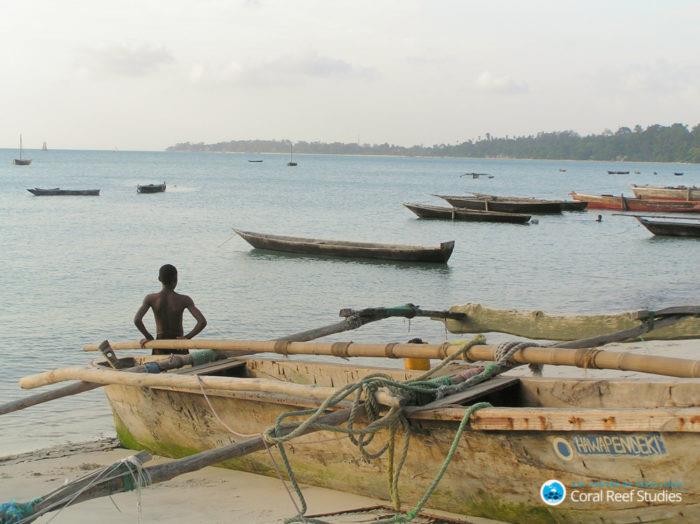
Clear goals but murky path to sustainability
by Melissa Lyne 6 Nov 2019 12:35 UTC

Both human and natural well-being need to be valued beyond defining a 'good life' based just on gross domestic product © Joshua Cinner
As biodiversity loss continues at an alarming rate across the globe a new study identifies what is needed to tackle the root causes of the problems.
International sustainability policies set clear goals for protecting ecosystems and biodiversity, but how to actually achieve these goals remains elusive in practice.
"We highlight existing gaps and priorities in sustainability research, offering a valuable synthesis of past, present, and future research needs," says coauthor Prof Graeme Cumming from the ARC Centre of Excellence for Coral Reef Studies at James Cook University (Coral CoE at JCU).
This includes more relevant, solutions-focused research to address the social-ecological crisis.
The study also highlights the knowledge gaps for effective governance, institutions, and connections between social and ecological systems. The authors argue these knowledge gaps are an important input for the new global biodiversity targets set to be adopted in 2020 under the United Nations Framework Convention on Biodiversity.
The assessments synthesise current knowledge about the relationship between people and nature, including humans' role in managing ecosystems to provide human benefits.
The authors compared the knowledge gaps identified in the seven most recent IPBES (Intergovernmental Science-Policy Platform on Biodiversity and Ecosystem Services) reports to key international sustainability goals set out by the United Nations for both the Aichi Biodiversity Targets, agreed to in 2010 under the Convention on Biological Diversity, and the Sustainable Development Goals, agreed to in 2015.
The reports are a critical tool for both evidence-based policymaking and scientific research agendas. They reflect the need for new ways to value both human well-being and biodiversity protection. The role of indigenous and local knowledge to sustain nature's benefits to people has also emerged as a key knowledge gap.
Lead author Matias Mastrangelo, from the National University of Mar del Plata in Argentina, says global sustainability goals cannot be achieved without improved knowledge on feedbacks between social and ecological systems, effective governance systems and institutions that can equitably deliver ecosystem services and protect vulnerable people.
"We need to identify management and policy strategies for ecosystems and biodiversity that are effective, just, inclusive, and promote good quality of life."
To support decisions that ensure both people and nature can thrive, human and natural well-being need to be valued beyond defining a good life based just on gross domestic product.
The importance of human values and institutions puts people at the heart of nature protection, as the future of humanity depends on how we respond to the current social-ecological crisis.
Paper
Mastrángelo M, Pérez-Harguindeguy N, Enrico L, Bennett E, Lavorel S, Cumming G, Abeygunawardane D, Amarilla L, Burkhard B, Egoh B, Frishkoff L, Galetto L, Huber S, Karp D, Ke A, Kowaljow E, Kronenburg-García A, Locatelli B, Martín-López B, Meyfroidt P, Mwampamba T, Nel J, Nicholas K, Nicholson C, Oteros-Rozas E, Rahlao S, Raudsepp-Hearne C, Ricketts T, Shrestha U, Torres C, Winkler K, Zoeller K (2019). Nature Sustainability. 'Key knowledge gaps to achieve global sustainability goals'. DOI: 10.1038/s41893-019-0412-1.